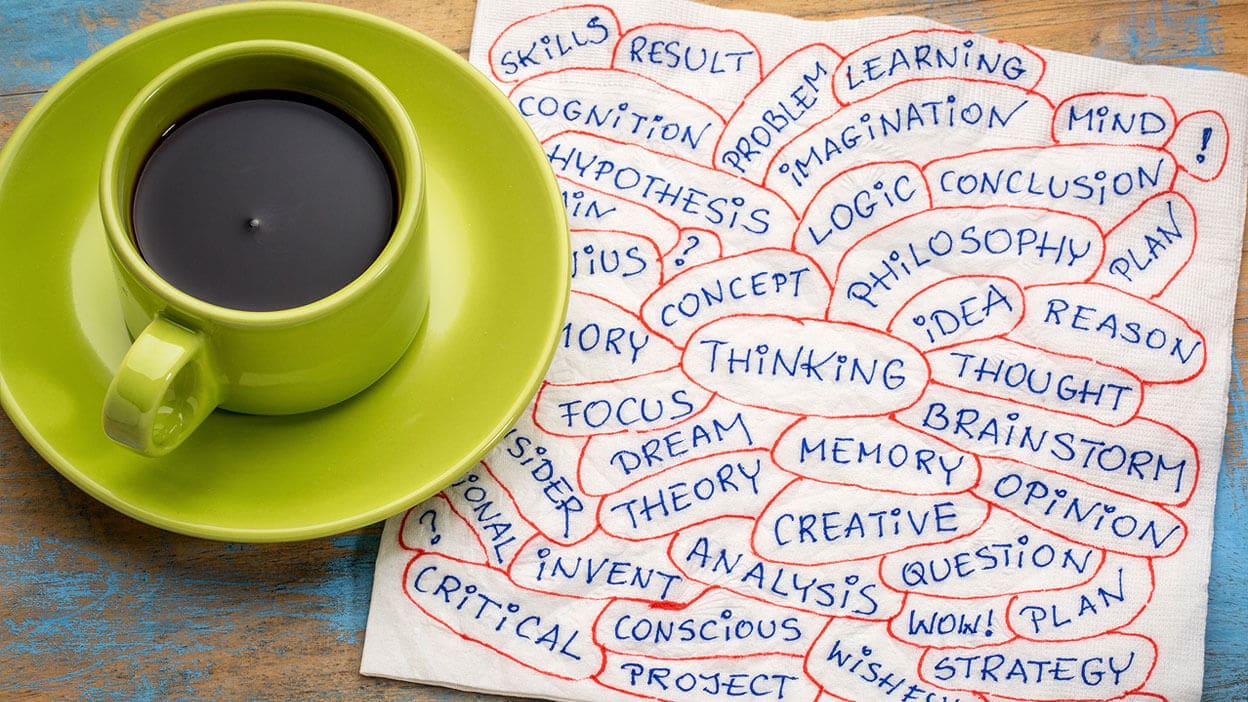… Two pots of coffee later and we’re just getting started – the most crucial insight is still ahead!
To truly grasp why collective irrationality spreads, we must examine the inner workings of our own minds. Despite our confidence in reason, human thought is driven more by emotion than logic.
We like to imagine our choices are guided by evidence, but reality is much messier.
Nobel laureate Daniel Kahneman, in his influential book “Thinking, Fast and Slow”, explains that our minds operate using two distinct systems. One is quick, instinctive, and emotional – constantly making snap judgments to save time and energy. The other is slow, deliberate, and rational – but it demands effort and focus.
Here’s where problems arise; in a world that moves at breakneck speed, most people default to the faster mode of thinking. We rarely pause for thoughtful reflection, relying instead on mental shortcuts and stereotypes – shortcuts that often mislead us, even though they feel right at the time.
Our minds are especially vulnerable to large-scale influence. Those in power – politicians, advertisers, and the media – are well aware of this. They skilfully take advantage of our cognitive tendencies, distilling complicated topics into black-and-white choices.
Using emotionally loaded words, they sidestep rational analysis, repeating the same themes until we internalize them – not because we’ve scrutinized their accuracy, but simply because they sound familiar (through constant repetition).
The real risk lies in what happens next; once an idea is accepted as true, we instinctively defend it, often disregarding contradictory information. This tendency is called confirmation bias, one of the most influential mental pitfalls we face.
Consider your own convictions for a moment. How frequently do you look for information that challenges your views? How often do you genuinely listen to those with differing opinions, instead of just crafting your rebuttal? If you’re truly honest with yourself, probably not as often as you’d like to believe.
This isn’t a personal failing – it’s part of being human. The issue arises when we fail to recognize this bias in ourselves.
Another important phenomenon is groupthink – a psychological process where the urge for agreement or cohesion overrides sound judgment. This has been observed in everything from failed business decisions to some of history’s darkest moments. People suppress their misgivings to preserve group unity, preferring agreement over accuracy.
Irving Janis, the psychologist who first described groupthink, found that even intelligent and well-meaning individuals can make disastrous choices when dissent is stifled and critical thought is avoided.
Why does this happen? Because questioning the collective can feel threatening; defying the majority takes more than intellect – it demands honesty and bravery.
Yet, if we look at history, real progress is almost always sparked by those willing to question prevailing assumptions and challenge the status quo.
Individuals like Galileo, Darwin, Nietzsche, and Martin Luther King faced rejection, mockery, and hostility for their groundbreaking thoughts. Yet, they persisted – they questioned, spoke out, and dared to challenge the prevailing ignorance of their eras. Their courage to confront accepted norms has profoundly influenced the world we inhabit now.
However, it’s important to recognize that independent thinking often comes at a price. In cultures where scepticism is discouraged, questioning can be a radical act. Those who dare to doubt risk being misinterpreted, excluded, or even despised.
Yet, this journey also brings remarkable rewards: a sharper understanding of reality, genuine self-esteem, and the deep assurance that your convictions are authentically your own – not simply inherited or imposed.
Let’s consider our present moment. Why do so many people today feel directionless, uneasy, or dissatisfied, despite living in an age overflowing with information and technological advancements?
The root of this discontent isn’t found in what we’ve gained, but rather in what we’ve abandoned. Chief among these losses is the art of introspection – the practice of pondering questions deeply and letting insight arise from thoughtful reflection.
Too often, we delegate our thinking to algorithms, media outlets, and popular opinion. But no piece of technology can determine your personal truth; no viral trend can replace your inner guidance; no collective movement can stand in for the quiet confidence that springs from well-examined beliefs.
So how do we reclaim this lost capacity?
By nurturing our awareness – paying attention to our thought patterns, the information we consume, and recognizing the difference between active reasoning and automatic reaction.
One effective method is metacognition: observing and analysing our own mental processes.
Ask yourself: What shapes my current viewpoint? Am I willing to reconsider? Am I truly grappling with this idea, or merely absorbing it without question?
Another valuable approach is dialectical thinking – the discipline of holding two contradictory ideas simultaneously and exploring their interplay with open curiosity.
This isn’t merely about having a nimble mind – it’s about cultivating genuine mental resilience. Such strength enables you to move past simplistic dualities, to transcend the habitual “us versus them” mindset, and step into a space where authentic comprehension can flourish.
Let’s be clear: mastery of critical thinking doesn’t happen overnight. It is a practice – one that demands more than skimming headlines; it calls for deep engagement with complex ideas, thorough reading, and wrestling with nuanced arguments.
It asks you to open your ears not only to those who echo your views, but more crucially, to those who challenge them.
Above all, it requires humility – a willingness to live with ambiguity and accept uncertainty as an essential part of growth.
Rejecting intellectual complacency is vital. When something seems suspiciously perfect, scepticism is warranted. And if consensus forms too easily around you, that’s your signal – not necessarily to rebel, but to inquire with honesty.
In an age where ignorance is amplified and bravado often masquerades as expertise; deliberate thoughtfulness becomes both an individual achievement and a societal duty. The fate of communities rests less on how loudly people proclaim their beliefs and more on the depth and rigor with which they examine them.
Meaningful change rarely begins with crowds; it starts when a single person chooses clarity over confusion in a world clouded by noise.
As we approach the final segment of this discussion, we’ll uncover the fundamental reason critical thinking is waning – and discover actionable steps you can take not only to resist this decline, but hopefully also to inspire others.
What follows may transform your understanding of your own mind, reshape your relationships, and redefine your potential impact on the world.
At the root of this crisis – beneath the surface chaos of digital chatter, institutional failures, and cultural divides – lies a deeper truth waiting to be revealed.
There’s a deeper, more subtle force at play. The decline of critical thinking isn’t rooted in a lack of ability – it stems from fear.
People hesitate to question deeply because honest inquiry might unravel the very foundations that make them feel secure: their sense of self, their convictions, their communities. For many, these are too vital to scrutinize.
Today, personal identity is treated as untouchable. Individuals tie themselves tightly to their beliefs, groups, and ideologies. As a result, challenging someone’s perspective is often interpreted as attacking their very personhood.
But this is the great deception – the notion that our ideas are inseparable from who we are.
You are not defined by your political alignment, your faith, or your social circles. At your core, you are a person capable of transformation, of learning and adapting. True growth starts when you stop equating your value with your present worldview.
Ultimately, critical thinking transcends mere mental exercise. It is an act of courage and integrity – a commitment to seek truth over comfort, personal development over rigid certainty, and genuine autonomy over the need for approval.
Choosing awareness is a quiet act – a resolve to keep your eyes wide open, even when the glare is harsh. Because once you cultivate critical thinking, the invisible frameworks shaping your life become visible: webs of influence, systems designed to steer you, unspoken rules, and the disguises people adopt.
This revelation can be daunting – sometimes even painful – but it’s authentic. And it’s only by facing the discomfort of what’s real that genuine freedom becomes possible.
Carl Jung observed that people will go to extraordinary lengths – sometimes to the point of absurdity – to avoid confronting themselves. Yet the heart of critical thinking lies precisely in this confrontation: examining our subconscious drives, questioning our inherited assumptions, recognizing the mental traps we fall into.
It’s not just about challenging external realities – it’s about interrogating your own beliefs. Why do I hold this view? Where did it originate? What fears stop me from letting it go?
When you ask these kind of questions with sincerity, a new landscape unfolds – not just of information, but of insight. And in a world desperate for instant solutions, what we truly lack is wisdom.
Where society rewards surface-level answers, wisdom invites us to dig deeper. Amidst constant distraction and pressure to conform, wisdom offers both silence and courage – the courage to live authentically.
Consider this your call to awaken – not simply to think but to become conscious, to refuse being moulded by your surroundings, and instead design the contours of your own mind.
No institution or digital platform can do this on your behalf; the task is personal and yours alone.
But as you embrace this responsibility, something remarkable occurs; clarity emerges. You start to experience what it means to be aligned with truth – not inherited or fashionable truths, but those you’ve earned through effort and honesty. You develop an instinct for recognizing manipulation when it appears.
This is the path toward personal sovereignty and genuine understanding.
There comes a point when you discern the line between raw information and manipulative propaganda, between genuine learning and mere brainwashing, between authentic relationships and superficial performance.
More crucially, you begin to guide yourself and others – not through bluster or self-importance, but through substance. You become a beacon where there is darkness, a source of peace amid chaos, a steady mind surrounded by impulsiveness.
I believe this, above all, is what is urgently needed today: not more volume or fiercer disputes, but greater depth. We need thinkers who can embrace ambiguity, who are unafraid to admit uncertainty yet eager to grow. We need those who seek understanding over victory, who pursue truth rather than applause.
If your aim is to effect change in the world, begin by transforming your own mindset. Do this not for convenience or popularity, but because it is the ethical path.
The widespread dulling of thought isn’t the root problem – it’s the result: the outcome of anxiety, exhaustion, and a society too preoccupied to engage in introspection. Yet every act of clear thinking resists this downward pull.
Each pause for contemplation rather than an automatic response, each question posed instead of an assumption made, every choice of lucidity over comfort – these are moments when you reclaim your agency.
Remember: the most radical act right now isn’t to yell louder, follow the crowd, or echo familiar catchphrases – it’s to think independently.
Others may drift through life repeating slogans and seeking approval at the cost of their autonomy. But you – you are now awake. And once awakened, there is no return to ignorance.
Remain inquisitive my friend. Stay alert. And above all, keep thinking!




